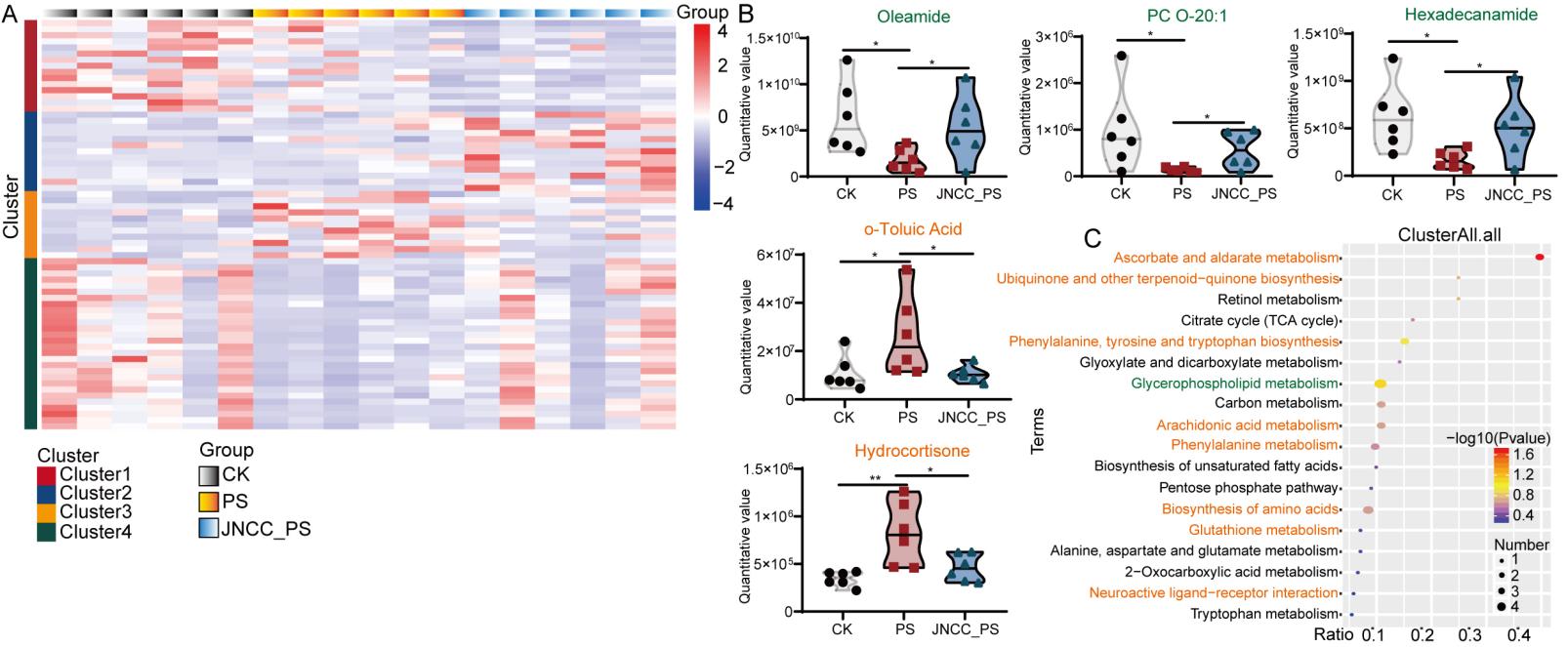
Recently, the Innovation Team of Functional Component Utilization and Biosynthesis from Institute of Bast Fiber Crops, Chinese Academy of Agricultural Sciences (IBFC, CAAS) has revealed that jute nanocrystalline cellulose mitigated environmental pollutant-induced damage by modulating the "microbiota-glycerophosphate metabolic network". These findings were published in ACS Nano, a leading journal by the American Chemical Society.
Environmental pollutants, particularly plastics and nanoplastics, pose severe threats to human and animal health. nanoplastics can enter the human body through the food chain, accumulate in the gut, disrupt intestinal microbial balance, and even trigger or exacerbate inflammatory bowel diseases such as colitis, potentially leading to systemic health crises. Currently, there are few reports on effective biological agents to counteract the damage induced by such pollutants.
Researchers innovatively utilized plant-derived jute nanocrystalline cellulose to effectively modulate the gut microbiota to reduce oxidative stress and apoptosis signaling pathway. This study revealed that jute nanocrystalline cellulose precisely regulated core probiotic communities, restoring microbial balance disrupted by nanoplastics and alleviating dysregulation of the "microbiota-gut-phospholipid metabolism axis". By deciphering the molecular mechanism of "nanocellulose-microbiota modulation-damage repair," this research not only offered a strategy for health interventions via gut microbiome regulation but also provided robust scientific evidence for nanocrystalline cellulose as a dual-functional biomaterial capable of modulating microbiota and repairing dysbiosis.

Fig. Jute nanocrystalline cellulose precisely regulates the gut microbiota to stabilize phospholipid metabolism and then alleviate the cytotoxicity caused by nano-polystyrene treatment
This research was funded by National Natural Science Foundation of China, Science and Technology Innovation Program of Hunan Province, and Agricultural Science and Technology Innovation Program of CAAS.
This study titled Jute Nanocrystalline Cellulose Relieves Polystyrene Nanoplastic-Induced Acute Injuries by Modulating Gut Microbiota Gilliamella apicola can be accessed through the following link: https://pubs.acs.org/doi/10.1021/acsnano.5c04210
By Deng Yanchun & Hou Chunsheng (Dengyanchun@caas.cn)

